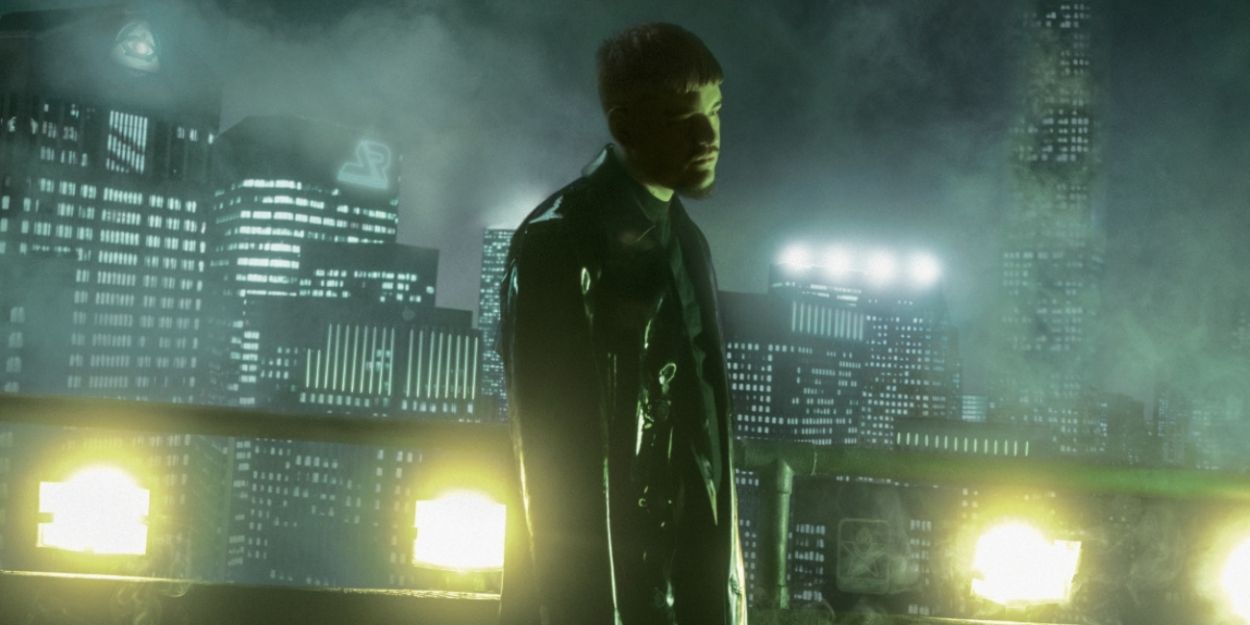Yeat rules over a futuristic dystopia in 2093
by Ben Gardner
2024-03-14

If you were to imagine a futuristic version of the infamous Chicago Mob boss Al Capone, what would you envision? Would it be something like California rapper/singer/producer Yeat in a trench coat atop a skyscraper? Listen to 2093 and find out for yourself.
This new album from one of the modern rap game’s fastest growing artists presents a different soundscape than his past work. While previous Yeat records, like Aftërlyfe and Up 2 Më, are classic examples of plugg (a subgenre of modern trap), 2093 takes a more experimental route. Through the rollout and aesthetic of the album, Yeat paints a picture with flavors of Cyberpunk and 1984, a technologically advanced hellscape where only the strong survive.
The production for this album is a breath of fresh air. It’s worth noting that Yeat has a heavy hand in all of his production and, in fact, he mixed and recorded this entire album himself. He clearly had a vision for the soundscape of the album, and delivered. The beats are chock-full of weird sounds, soaring synths, and marching bass. “ILUV” is one of the standouts — the beat is violent, chaotic, and turbulent, centered around a robotic Crystal Castles sample. Much like many of the tracks on 2093, it is supported by stomping 808s. The beat on “Breathe” (which sampled this iconic regular show scene) is one of the hardest on the album with almost comical amounts of bass. Yeat’s vocals on this one are personable as well, uttering nonchalant brags between shouts of “Breathe!” The synths are amazing, like the lead during verse 2 on “Mr. Inbetweenit.” The production on the outro, “1093,” is cinematic and broad. A synth-heavy ballad with shades of Kanye West’s Yeezus is a fitting end to the record.
Yeat’s vocals are as weird as ever, and he switches between different voices on different tracks. He wears his influences on his sleeve, emulating the distinct voices of trap legends Future and Travis Scott on “Power Trip” (which also features a floaty outro with vocals from Childish Gambino).
Yeat’s vocals are distinctly him, though. He often pronounces words in weird and interesting ways, using adlibs and hums to accentuate the production. Yeat uses his voice as an instrument, and it often rides on top of beats. It’s heavily altered with distortion and his signature auto-tune. Despite the unique and futuristic soundscape, which is quite distinct from his previous work, his voice fits in comfortably.
Yeat has never been a man of many words, but I expected him to be more on theme with his lyrics. Aside from a few mentions of spaceships, aliens, and going to the moon, he fails to stray away from his typical subject matter. He mostly sticks to bragging about his fame and wealth, using 2093 as a metaphor for how far ahead he is compared to all of his competitors. I don’t expect Yeat to be the next Kendrick Lamar, but I wish that his lyrics were more in line with the distinct aesthetic he curated for this album. It’s worth mentioning that there are less allusions to drug use, due to the fact that he recently sobered up.
The album has a couple features, which mostly fit in well. The legendary Lil Wayne joins Yeat on “Lyfestylë,” where they challenge their competitors to get on their level. Yeat shows some personality, taunting, “could you do what I did and do it twice?” Future’s verse on “Stand On It” is marred by the weak mixing on his voice. The aforementioned Childish Gambino part on “Power Trip” is small but tasteful. Overall, Yeat does enough with his own vocals that features are more of a privilege, not a necessity on 2093. I was expecting a feature from Drake, since Yeat recently appeared on his viral track “IDGAF” on For All The Dogs. Unfortunately, he was only able to make the deluxe, on the track “As We Speak.”
My final criticism of this album is its length. The first half of the record is solid, but it drags on in the second, which is filled with forgettable tracks, such as “Psychocainë” and “Run Thëy Mouth.” 22 tracks is just too much, especially when the lyrics are pretty similar on each song. If Yeat had kept it to between 10-15 songs it would have been more palatable.
On the cover, Yeat notably has not donned his signature baklava, instead choosing to reveal his full face to the world. To me, this is symbolic of his growth and dynamic spirit as an artist. On 2093, Yeat demonstrates his ability to go in a different direction musically and artistically. He has established himself as a mainstay in the modern rap scene with his willingness to grow and evolve. Although not without its flaws, 2093 leaves fans of Yeat excited for what’s to come.
Best Songs: Power Trip, Breathe, ILUV, Keep Pushin, Team Ceo, 1093
